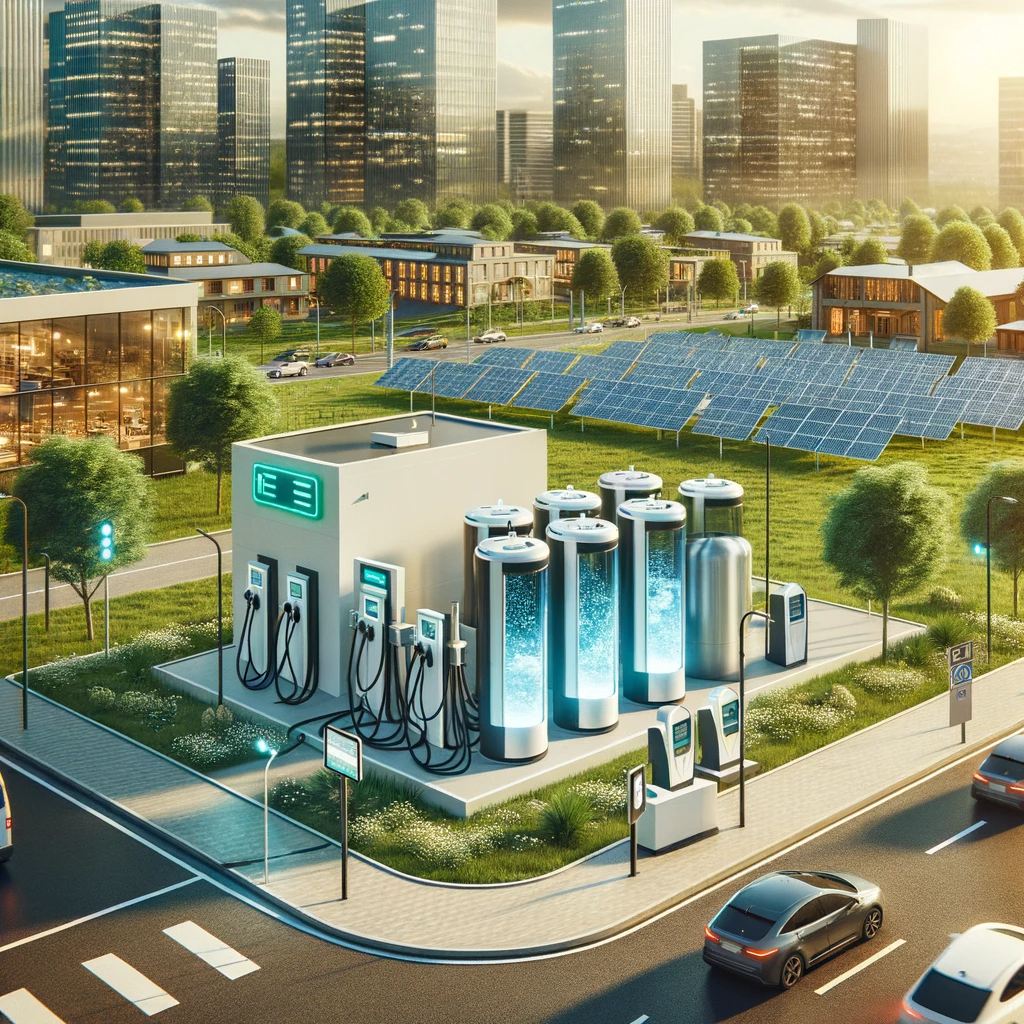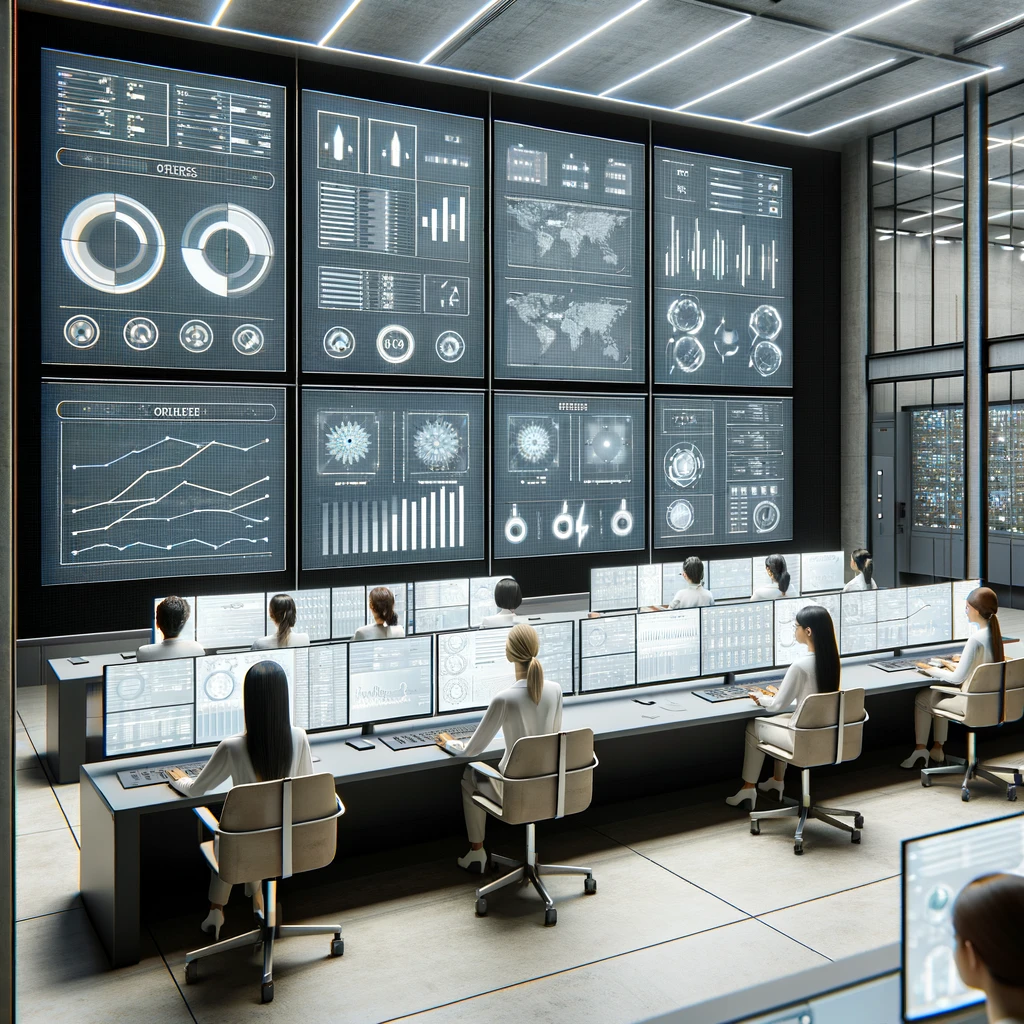Open student projects
Apply your creativity and engage with cutting-edge research.
1. Economic potentials of H2 technologies within a multi-energy district (currently taken)
There has been a rapid acceleration in the expansion of electrolysis capacity in recent years. The previous year marked a record-breaking deployment of electrolysis technology [1]. Recovering waste heat from electrolysis and compression can improve the overall system efficiency. The integration of such waste heat into district heating systems has been investigated in literature [2], where levelized cost of heat has been used to value waste heat. However, given dynamic electricity price, time-varying hydrogen demand, potential provision of ancillary services to energy systems, time-varying thermal demand within the district heating network and the supply temperature level, the marginal cost of waste heat can vary during the day. In addition, base heat supply systems such as heat pumps are equipped to supply the heating demand. Therefore, the pricing of waste heat from a hydrogen-based system needs to be lower than the pricing of heat from heat pumps, to be accepted by consumers.

For more details or to participate, visit Project Information on SiROP.
2. Optimal design of multi-energy communities with heat prosumers
In response to the Swiss Energy Strategy 2050 and potential gas supply vulnerabilities, there is a growing interest in developing small-scale district heating systems in Switzerland. Transitioning from singular, gas/oil-reliant heating systems to multi-energy networks not only aligns with the Swiss environmental commitments but also enhance resilience against supply disruptions. Traditional individual heating units, designed to meet peak demands, are often underutilized, while also posing concerns due to their dependency on gas supply. By interconnecting buildings, we can optimize energy use at the local level. Integrating advanced control systems into these networks can further enhance energy efficiency and responsiveness. Nonetheless, design of such small-scale district heating system is different from conventional centralized district heating system, in terms of cost, ecological impacts and additional constraints such as resource availability and limited space. Therefore, the economical and ecological aspects of such energy communities need to be thoroughly investigated taking into account different scenarios of retrofitting strategies, heating demand density, long-term thermal demand forecast and technology mixes including their operational and embodied emissions

For more details or to participate, visit Project Information on SiROP.
3. Optimal digital transformation in building sector
Buildings are major contributors to global energy consumption and carbon emissions. The rise of information and communication technology (ICT) infrastructure has made digital transformation in the building sector increasingly feasible. However, the cost-effectiveness of sensor-based systems for energy management remains an open question. The trade-off between investing in sensor-based systems versus the resulting cost savings during building operation will be investigated in the project.

For more details or to participate, visit Project Information on SiROP.
4. How reliable is the energy flexibility-assisted smart energy system (currently taken)
Amid the large-scale integration of renewables, energy system is increasingly relying on the demand-side flexibility provision. Flexibility provision with significant deviations from the contracted amount can be considered as a failure and associated with penalties. However, reliable provision of demand-side flexibility for system support has received little attention so far. This study aims to develop a conceptual framework for evaluating the reliability of demand-side flexibility exploring multiple sources of impacts, such as heat pump failure and occupants interactions.

For more details or to participate, visit Project Information on SiROP.
5. Interpret data-driven control decisions
System control interpretability is essential for user trust. This project will investigate the interpretability of in-house data-driven controller decisions. The objective is to improve transparency, thus facilitating their application in managing energy systems. By focusing on transparent control mechanisms, this research aims to bridge the gap between complex control strategies and user trust.

For more details or to participate, visit Project Information on SiROP.
6. Evaluate the robustness of data-driven controllers
Performance of data-driven controller can be compromised corrupt data. This can have significant implications, especially in systems that rely on accurate data for decision-making. In this project, we will focus on robustness of data-driven controllers for applications in buildings.

For more details or to participate, visit Project Information on SiROP.